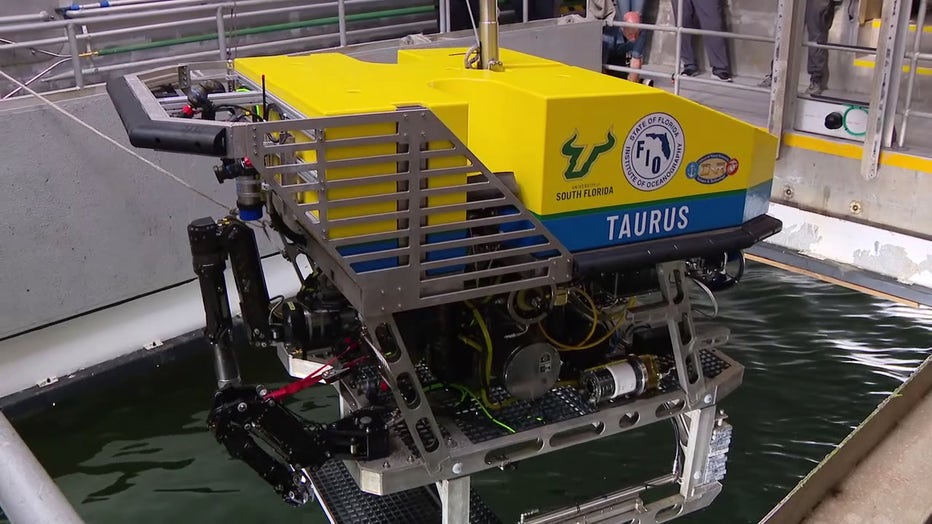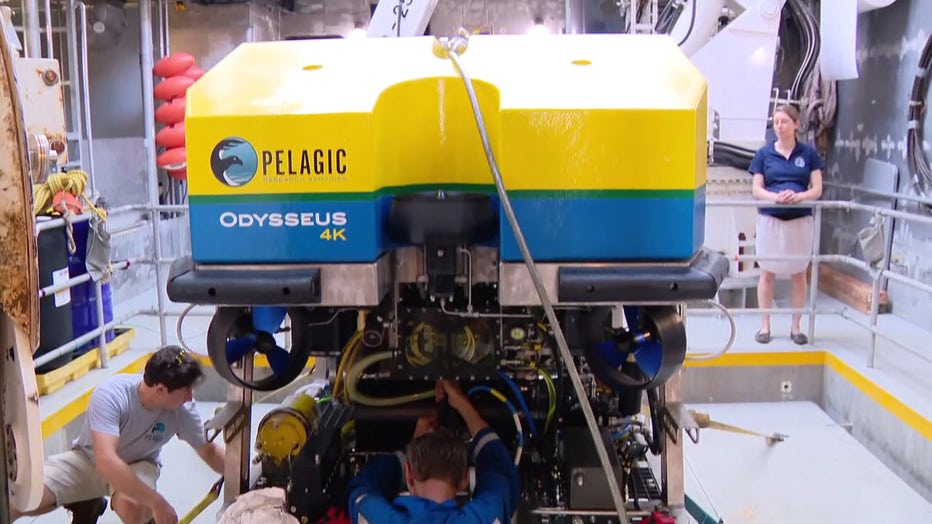USF, Florida Institute of Oceanography’s new remotely operated vehicle to embark on first underwater mission
New vehicle to explore the ocean depths
Researchers with USF and the Florida Institute of Oceanography are preparing their new remotely-operated vehicle, Taurus, for its inaugural mission.
ST. PETERSBURG, Fla. - Crews with the University of South Florida and the Florida Institute of Oceanography prepped their new remotely operated vehicle, Taurus, on Monday for its first mission.
The Remotely Operated Vehicle (ROV) can reach depths of two and a half miles in the ocean. It opens the door for exploration of some of the ocean’s most remote areas, scientists said.
"We probably know more about the surface of the moon than we do in the deep ocean, and so having that opportunity, particularly here in the Gulf of Mexico, where we have so much going on with regard to our economy, it's a big deal for us," Tom Frazer, the dean of USF’s College of Marine Science, said.
READ: AI-powered smart mosquito trap developed at USF to help fight spread of malaria, save lives abroad
Taurus lets scientists live stream HD images of what the ROV sees, and has sensors that can measure things like salinity and temperature.

"We don't know much about the deep ocean," Dr. Nicole Raineault, the chief scientist at the Florida Institute of Oceanography, said. "We have very few tools like this to study it. This is one of two that is related to a university system in the U.S. The other is in Hawaii. So, this is going to provide unprecedented access to the ocean, so that we can understand it more and make new discoveries."
"This capability just doesn’t exist anywhere close by," Dr. Monty Graham, the director of the Florida Institute of Oceanography, said.
It’s an unprecedented opportunity not just for students, but for the community, school leaders said.
MORE: USF cybersecurity training program targeting veterans, first responders
"We’re already, with the College of Marine Science and the Florida Institute of Oceanography, recognized worldwide as kind of a powerhouse in the oceanographic space, but this is really only going to kind of propel us to the next height of what we do in ocean research," Frazer said.

The ROV is a partnership between the Florida Institute of Oceanography, USF, the Office of Naval Research and the private sector.
"We approached the Office of Naval Research about a program that we would like to start. They loved the idea of doing this for workforce development because they see problems with their own workforce in the future," Graham said.
The multimillion-dollar machine is housed on the Research Vessel Wester Flyer at USF St. Pete. The technology onboard, scientists said, lets them study just about anything in the depths of the unknown.
Taurus leaves on Tuesday for its first trip, which will be testing all the ROV’s equipment just off of Tampa Bay. Then, it will start a student program with undergraduates and mentors from the area who can use the technology for their studies.
WATCH FOX 13 NEWS:
SIGN UP: Click here to sign up for the FOX 13 daily newsletter

